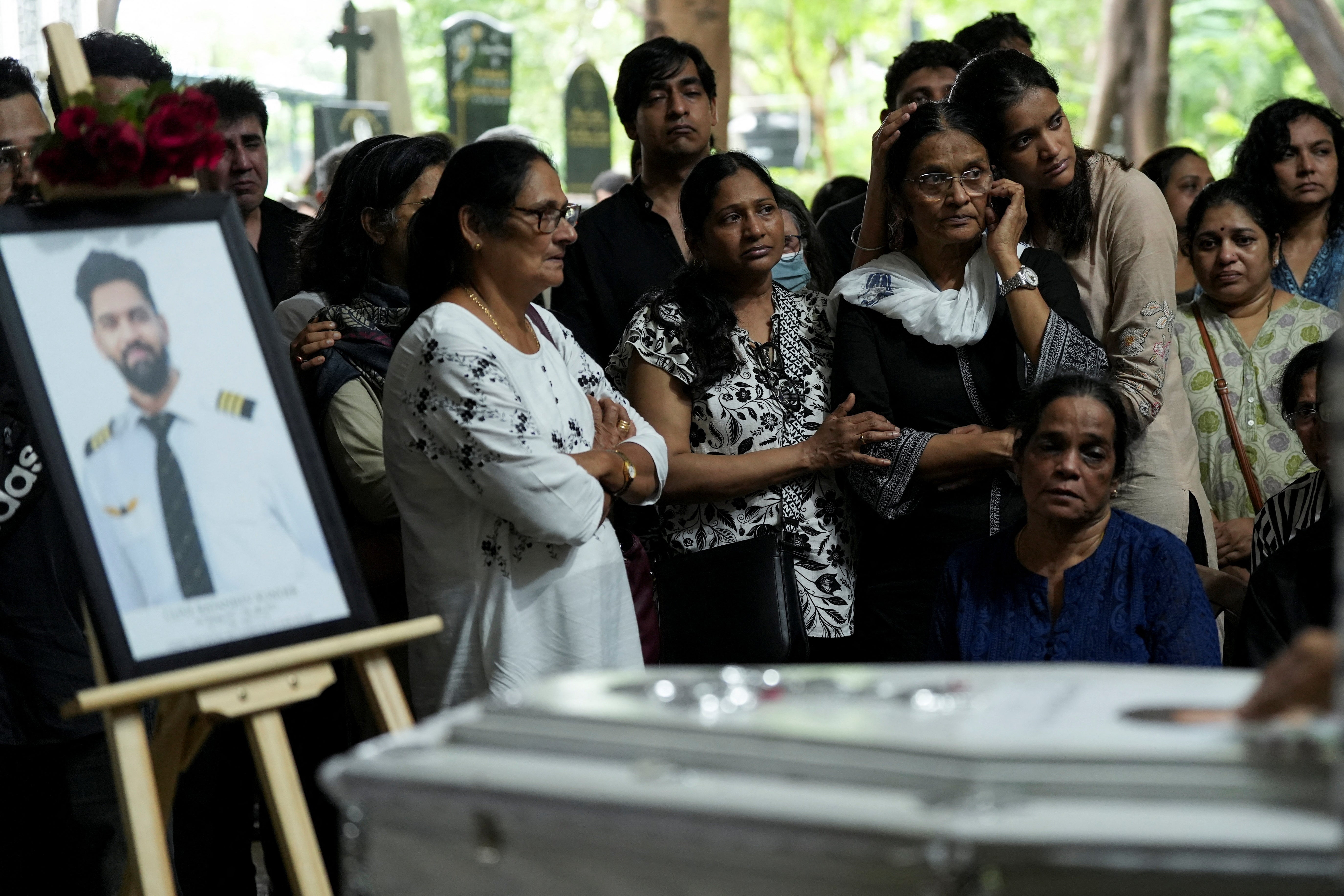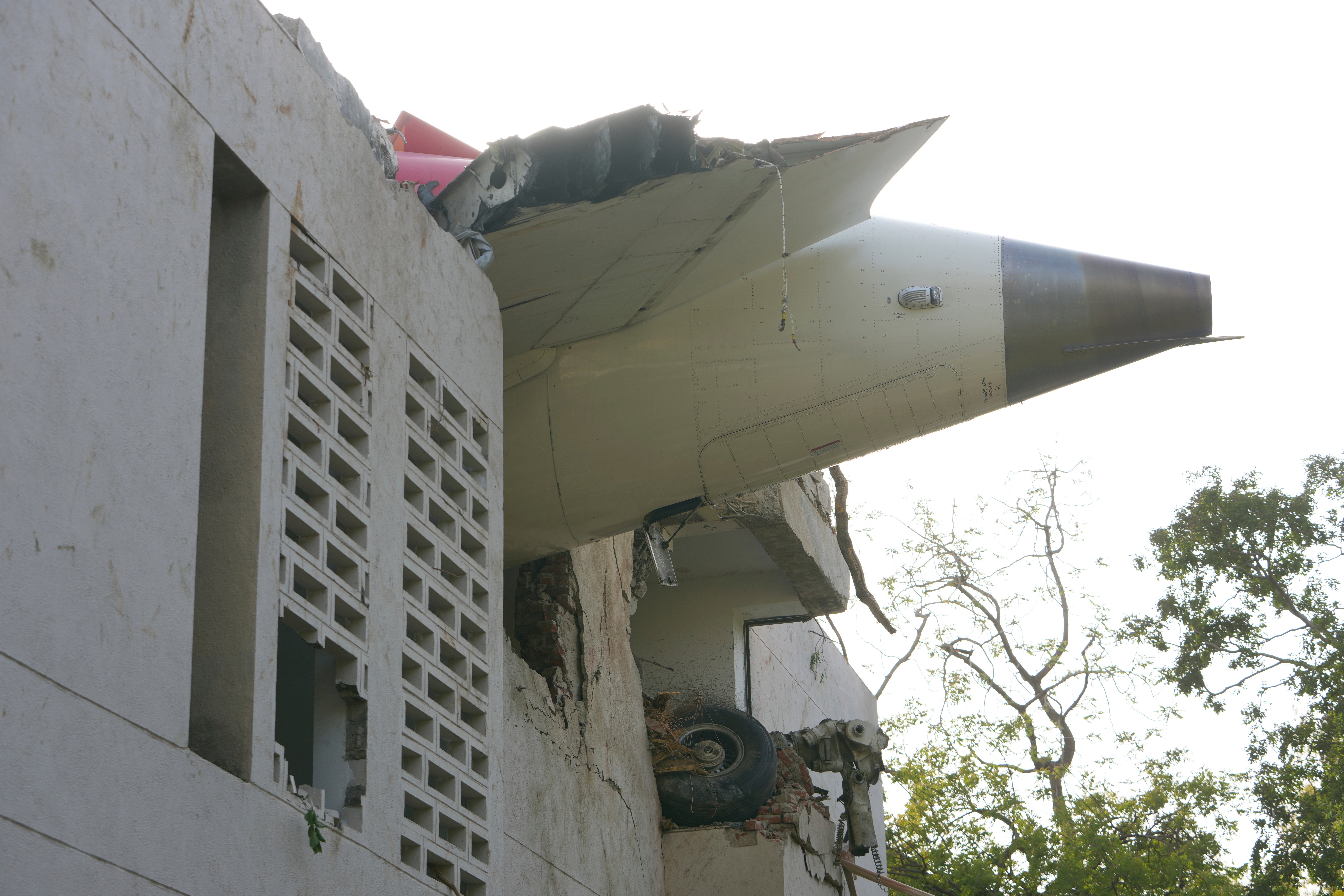India’s authorities have successfully recovered the first data from the two black boxes of the Air India flight that crashed outside Ahmedabad airport earlier this month.
India's civil aviation ministry said on Thursday that investigators are working to piece together what led to the crash, which killed all but one of the 242 people on board the plane as well as at least 19 people on the ground.
According to the ministry, data extraction from the aircraft’s black boxes began on 24 June under the supervision of the Aircraft Accident Investigation Bureau (AAIB). The crash-protected memory unit from the front recorder has been successfully retrieved, accessed, and its data downloaded.
Analysis of both the cockpit voice recorder (CVR) and flight data recorder (FDR) is currently in progress, the ministry added.
The devastating crash took place around 2pm local time on 12 June, when a London‑bound Air India Boeing 787 Dreamliner slammed into accommodation for medical students at Ahmedabad’s BJ Medical College only seconds after taking off. Such was the scale and intensity of the crash that victims could not be identified visually and relatives had to submit DNA samples. The handing over of the first remains only began some 72 hours after the crash.
Indian media had reported that the data recorder would be sent to the US for specialist analysis, but on Tuesday the Indian civil aviation minister Ram Mohan Naidu confirmed that it remained in India and was being analysed by the country’s own experts at the AAIB.

"Black box of the crashed AI 171 flight is still in India and it is being examined by the Aircraft Accident Investigation Bureau (AAIB)," Mr Naidu told the ANI news agency.
The crash on 12 June near Ahmedabad was the world’s deadliest aviation disaster in a decade.
The Indian government said on Thursday that a decision on whether to send either of the black boxes abroad for further decoding would be taken only after the AAIB had completed a full assessment of technical, safety and security considerations.
There has been a heightened atmosphere of scrutiny on Air India and the country’s aviation industry in general since the 12 June crash. Earlier this week, India’s aviation watchdog raised concerns over recurring aircraft defects at two of the country’s busiest airports – Delhi and Mumbai – citing what it described as inadequate inspections and poor maintenance practices.
The Directorate General of Civil Aviation (DGCA), which is conducting a special audit following the Air India crash, said multiple defects had resurfaced "many times", suggesting lapses in oversight. While the regulator did not name the airlines involved or specify the nature of the defects, the airports in question serve key carriers such as market leader IndiGo, Air India and Air India Express.

The DGCA stated that the repeated issues pointed to “ineffective monitoring and inadequate rectification action.” Additional violations included aircraft maintenance engineers failing to follow safety protocols, ignoring certain faults, and not adhering to prescribed work orders during jet servicing.
The audit is part of an ongoing effort by Indian authorities to tighten aviation safety and restore public confidence in the wake of the crash, which has included extra inspection procedures across the country’s rapidly growing aviation sector.
Growing calls for Pakistan to rescind Trump’s Nobel Peace Prize nomination
Singing sensation Diljit Dosanjh faces bizarre backlash over film casting choice
Air India flight from UK diverted to Saudi Arabia due to bomb threat
India now claims all Kashmir attackers were Pakistani nationals
Concerns for classified technology after British F-35 stranded in India
Met Gala 2025: Bollywood fans hail star turns of Shah Rukh Khan and Diljit Dosanjh







